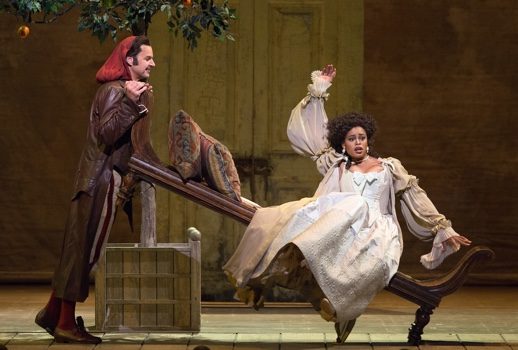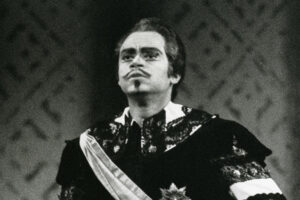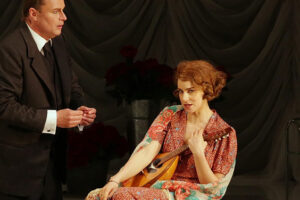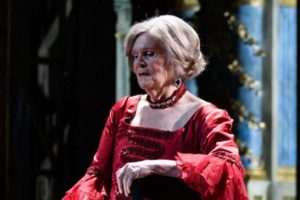
 In his fascinating book Domination and the Arts of Resistance, political scientist James C. Scott discusses what he calls the “infrapolitics of subordinate groups.” He defines this as “a wide variety of low-profile forms of resistance that dare not speak in their own name.” Infrapolitics is activism that happens offstage, beyond the scope of official observation—acts in the dark that seek to remain in the dark, though their ramifications extend outward into the public sphere. There is a bit of lawlessness to this work, a black market for the “unobtrusive realm of political struggle,” where trickery, deception, and defiance flare out “like infrared rays, beyond the visible end of the spectrum.”
In his fascinating book Domination and the Arts of Resistance, political scientist James C. Scott discusses what he calls the “infrapolitics of subordinate groups.” He defines this as “a wide variety of low-profile forms of resistance that dare not speak in their own name.” Infrapolitics is activism that happens offstage, beyond the scope of official observation—acts in the dark that seek to remain in the dark, though their ramifications extend outward into the public sphere. There is a bit of lawlessness to this work, a black market for the “unobtrusive realm of political struggle,” where trickery, deception, and defiance flare out “like infrared rays, beyond the visible end of the spectrum.”
Beaumarchais clearly delighted in this unobtrusive realm, and his work pulls the curtain back on the sharp perspectives of the disempowered. For example, Figaro is a master of the infrapolitical act: smart, solution oriented, a liar with a moral compass. And let’s not forget Rosine (in Italian, Rosina), though she may be oppressed as the second sex, she manages to enact her ambitions beyond the purview of the dominant class with her quick wit and an impressive ability to present one thing and do another.
Rossini’s perennial opera il barbiere di Siviglia whips this all up into a frothy pleasure, with a genius for situation comedy and a broad intellect that plumbs the more serious concerns within the story. So much of the fun is rooted in the opportunity to watch the main characters’ infrapolitical plans take root and flower. Figaro makes a fool of Dr. Bartolo. Rosina slips out of the old man’s fingers, into the arms of her beloved Almaviva. Close calls and unexpected interventions cannot dismantle the effective force of the cunning servant, especially when he is unleashed with such perception and craft.
But in order for this to work, the performers of il barbiere… need to be agile and adept. They need to embody the quick thinking the characters display in the text—through both lightning-fast coloratura and dexterous comedic timing. In the Met’s recent remounting of Bartlett Sher’s 2006 production, the cast has a little trouble getting its act together, presenting a stiff exercise instead of a well-oiled machine.
This is most disappointingly evident in the performance of Peter Mattei, whose rich middle voice sounds painfully overblown and strained on top. The rebellious exuberance of the vocal line is diffused and flattened. Also, his Figaro is way too stereotypical, moving through all the expected gestures with little personality to make the character sparkle with charm.
As Almaviva, Javier Camarena faces similar vocal obstacles. He has trouble warming up in the first act, and his “Ecco ridente in cielo” sounds stiff and awkward. However, the tenor is in fine form by the time he reaches the second act, tossing off runs and high notes with world-class polish. His performance of “Ah, il più lieto” is energetic, flexible, and lean.
And yet, in a whole other league is Pretty Yende as Rosina, who is glamorous, poised, and a skilled musician. Her soprano has a bright, metallic quality that dazzles with its bombast and control. But, beyond these key qualities, she takes a warm, laid back approach to the opera’s comedy; her rendering of Rosina is one of the more naturally effective performances I’ve seen in a long time. She smiles slyly, her generous spirit spilling out toward the audience with conspiratorial glee. And in the second act, when the character’s romantic aspirations have been threatened, she plays the scene with a lovely touch of realism, not merely pouting, but working through true feelings of betrayal and loss.
As her guardian, the insipid Dr. Bartolo, Maurizio Muraro is appropriately stuffy, and sweetly comical—a difficult accomplishment for such a distasteful character. His resonant bass serves the pompous role sufficiently, though much of his appeal hinges on his nearly perfect comic timing.
As the music master, Don Basilio, Mikahail Petrenko is funny in an unctuous sort of way, and his voice is a admirably secure presence within the mix. As Berta, Bartolo’s housekeeper, Karolina Pilou unfortunately sounds shrill and wobbly, her character remaining one-dimensional and unexplored.
Despite the unevenness of the cast, Bartlett Sher’s production works to drive its players to madcap levels, especially during the frenetic, topsy-turvy thunderstorm scene in the second act. With pleasant, romantic lighting by Christopher Akerlind, and elegant costumes designed by Catherine Zuber, the staging captures the deeper, subtler humor of the source material, provoking profound, heartfelt sympathies for the protagonists.
However, despite the nuances Sher is able to draw from the text, it’s disappointing to consider the end of Il barbiere di Siviglia: a veritable pissing contest. Thank god the right man wins! While Count Almaviva works desperately to woo Rosina as the disempowered Lindoro, ultimately it is his title that wins the day. He outranks his opponent; he out-Bartolos Dr. Bartolo. And while the infrapolitical has driven the plot and secured much success, it cannot, in the end, manage a happy resolution. That joyful task still lies with the official institutions of patriarchy. Privileges remain with the privileged. But for more on that, see Mozart’s Le nozze di Figaro.
Photo by Marty Sohl/Metropolitan Opera
























Comments